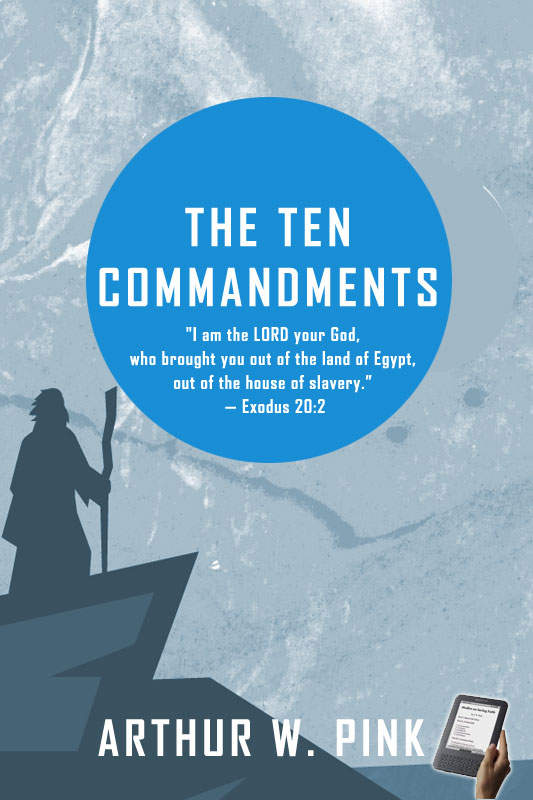 by A. W. Pink
by A. W. Pink
in ePub, .mobi & .pdf formats
We have a description of the fearful manifestation in which Jehovah appeared to deliver His Law ( Exodus 19:18,19), which was designed to affect the people of Israel with an awe for His authority and to signify that if God were so terrible in the giving of the Law, when He comes to judge us for its violation how much more so will He be? When God had delivered the Ten Words, so greatly affected were the people that they entreated Moses to act as a mediator and interpreter between God and them ( 20:18, 19). This teaches us that when the Law is delivered to us directly by God it is (in itself) the ministration of condemnation and death, but as it is delivered to us by the Mediator, Christ, we may hear and observe it (see Galatians 3:19; 1 Corinthians 9:21; Galatians 6:2). Accordingly Moses went up into the mount and received the Law, inscribed by God’s own finger upon two tables of stone, signifying that our hearts are naturally so hard that none but the finger of God can make any impression of His Law upon them. Those tables were broken by Moses in his holy zeal ( Exodus 32:19), and God wrote them a second time ( <023401> 34:1). This signifies that the Law of Nature was written on our hearts at creation, broken when we fell in Adam, and rewritten in our hearts at regeneration ( Hebrews 10:16) But some may ask, "Has not the Law been fully abrogated by the coming of Christ into the world? Would you bring us under that heavy yoke of bondage which none has ever been able to bear? Does not the New Testament expressly declare that we are not under the Law, but under Grace; that Christ was made under the Law to free His people therefrom?
Is not an attempt to overawe men’s conscience by the authority of the Decalogue a legalistic imposition, altogether at variance with that Christian liberty which the Savior has brought in by His obedience unto death?" We answer thus: So far from the Law being abolished by the coming of Christ into this world, He Himself emphatically stated, "Think not that I am come to destroy the Law or the Prophets (the enforcers thereof): I am come not to destroy, but to fulfill. For verily I say unto you, Till heaven and earth pass, one jot or one tittle shall in nowise pass from the law, till all be fulfilled" ( Matthew 5:17,18).
True, the Christian is not under the Law as a Covenant of Works nor as a ministration of condemnation, but he is under it as a rule of life and a means of sanctification.
-----
Table of Contents
Introductory Considerations
The First Commandment
The Second Commandment
The Third Commandment
The Fourth Commandment
The Fifth Commandment
The Sixth Commandment
The Seventh Commandment
The Eighth Commandment
The Ninth Commandment
The Tenth Commandment
A Word to Parents
